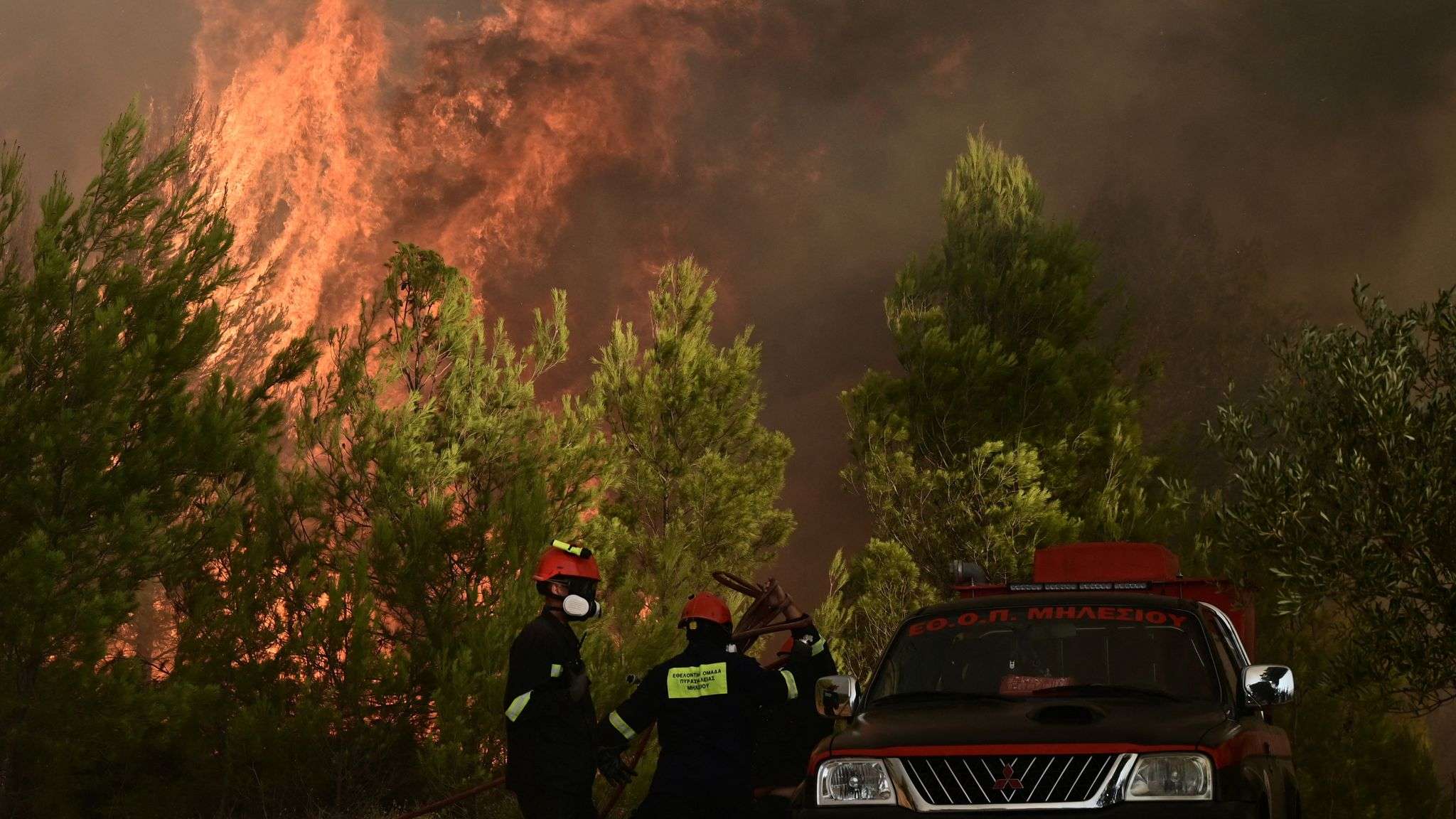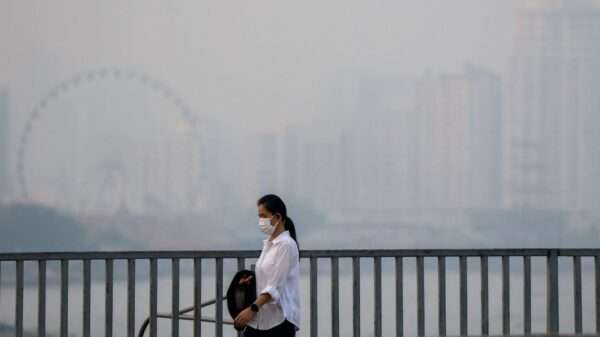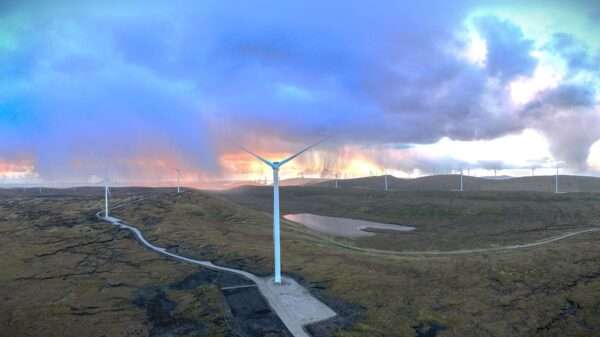Wildfires in Greece have escalated to a critical level, forcing the evacuation of hospitals near Athens as flames edge closer to the city. Greece, a country already vulnerable to wildfires, has faced an alarming increase in their frequency and intensity, largely attributed to climate change. This latest outbreak near Athens is a stark reminder of the growing environmental crisis and its immediate impact on human life.
The wildfires, driven by strong winds and scorching temperatures, have rapidly spread across the region. Firefighters are battling to contain the blazes, but the combination of dry conditions and high winds has made their efforts challenging. The situation became particularly dire as the fires advanced towards densely populated areas, prompting the evacuation of several hospitals in the vicinity of Athens to safeguard patients and staff.
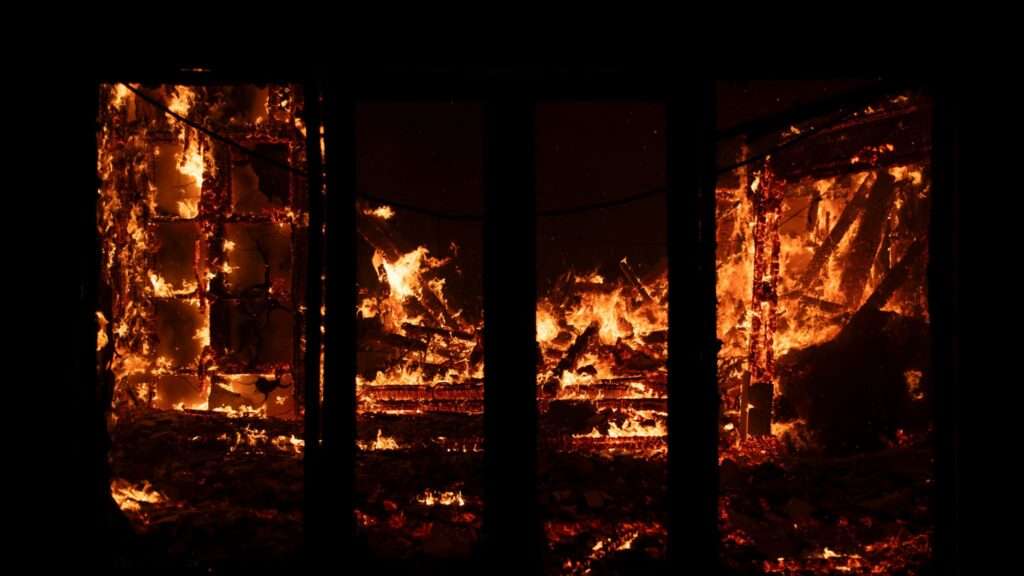
This wildfire crisis is part of a broader pattern seen across Greece in recent years. Climate change has intensified the conditions that lead to wildfires, making them more frequent and severe. Higher average temperatures, prolonged heatwaves, and reduced rainfall have turned vast areas of the country into tinderboxes, ready to ignite with the slightest spark. The increasing intensity of these wildfires has overwhelmed firefighting resources, and the risks to human life and property have escalated dramatically.
Greek officials have raised the alarm, confirming that half of the country is on “red alert” for potential wildfire outbreaks. This designation indicates an extreme level of danger, with the potential for fires to break out spontaneously in the hot, dry conditions. The alert status underscores the gravity of the situation and the strain on emergency services, as they must remain on constant vigilance for new fires while managing those already burning.
The evacuation of hospitals highlights the severity of the threat posed by these wildfires. Hospitals are critical infrastructure, and moving patients, especially those in intensive care or with mobility issues, is a complex and dangerous task. The decision to evacuate reflects the real and immediate danger to human lives as the fires encroach on urban areas.
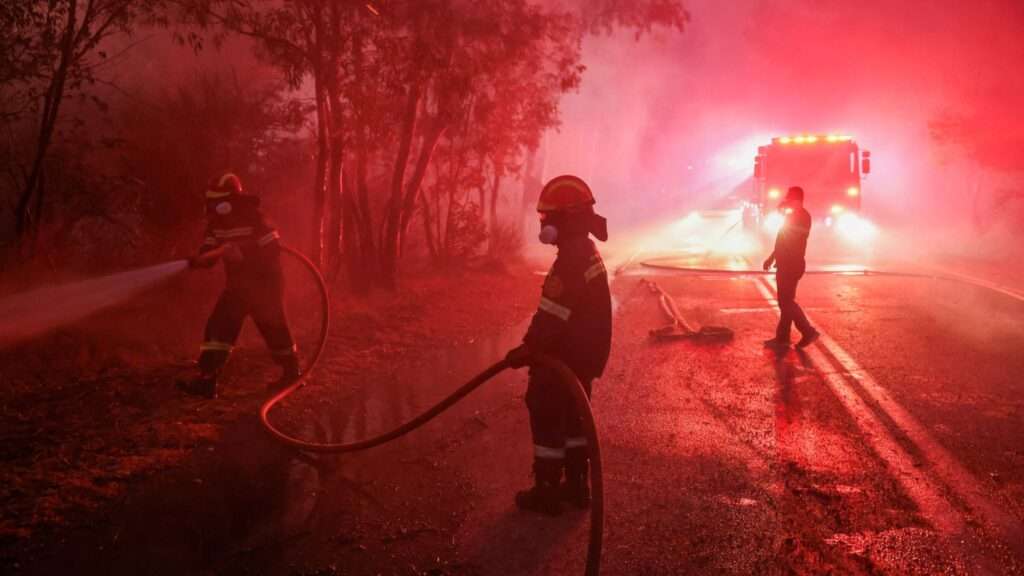
The wildfires near Athens have also raised concerns about the long-term impact of climate change on Greece’s ability to manage such disasters. The country has experienced a series of devastating wildfires in recent years, with significant loss of life and destruction of property. The repeated crises have tested Greece’s emergency response capabilities and highlighted the need for a comprehensive approach to climate change adaptation and disaster management.
As Greece grapples with the immediate threat of wildfires, the broader issue of climate change looms large. The increasing frequency and intensity of these fires are a direct consequence of a warming planet, and they serve as a warning of the challenges that lie ahead. The situation in Greece is a microcosm of a global problem, as countries around the world are forced to confront the reality of a changing climate and its impact on natural disasters.
The ongoing wildfires near Athens are a tragic reminder of the vulnerability of human life in the face of nature’s fury, exacerbated by climate change. The evacuation of hospitals, the spread of fires into urban areas, and the nationwide “red alert” all point to a crisis that demands urgent attention and action. As the fires continue to burn, the focus remains on saving lives and protecting property, but the underlying issue of climate change remains an ever-present challenge that cannot be ignored.
































